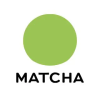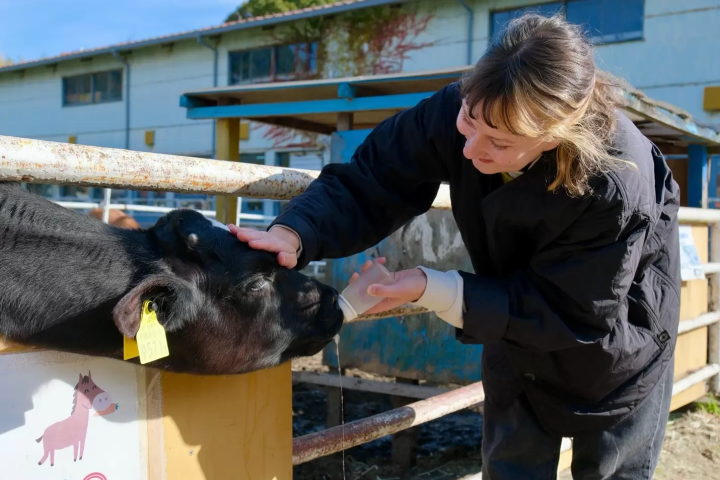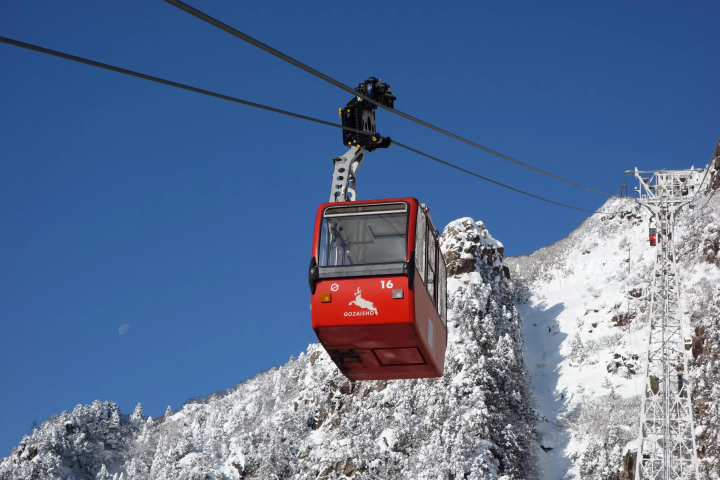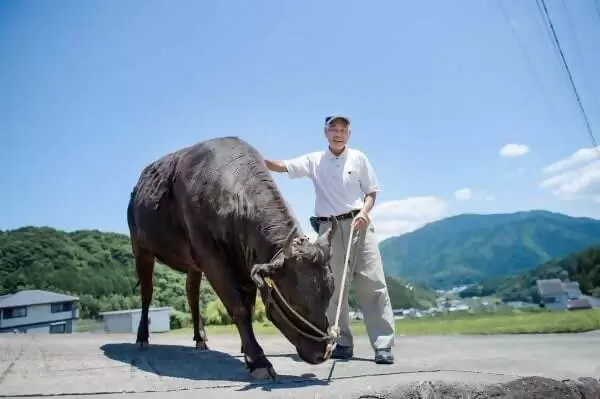Support Fukushima Through Hometown Tax! Top 4 Local Gifts

Fukushima has a wide variety of delicious processed seafood. This article will introduce some of the Fukushima seafood you can receive as local gifts under the hometown tax program. If you’re undecided on which municipality to support, this article will come in handy!
Japan's Hometown Tax System

Photo by Pixta
Many people are familiar with residence tax. To explain briefly, residence tax is paid to the municipality you reside in.
However, Japan’s population is heavily concentrated in urban areas, resulting in gaps in the tax revenue of rural areas. The hometown tax program was developed to make up the difference in tax revenue. While it may be called a “tax,” it falls under the donation category.
Under the hometown tax program, taxpayers choose the municipality they wish to donate to. They will then receive a local gift from that municipality equivalent to 30% of their donation value. There’s also the added benefit of receiving a tax deduction in their residence tax.
Four Steps to the Hometown Tax Program
We will introduce the process of participating in the hometown tax program. There are only four steps to follow, as indicated below. In other words, it’s a remarkably simple process.
1. On a hometown tax website (linked below), complete a simulation to calculate your maximum amount of tax credit deductibles.
2. Choose a municipality to donate to.
3. Receive a local gift and donation receipt.
4. Mail an exemption application with the necessary documents to the municipality you have donated. Get a tax deduction.
(*This is the process for the One-Stop Exemption System, which allows you to receive a tax deduction without filing a final tax return.)
Hometown tax websites include Rakuten Furusato Nozei, Furunavi, Satofull, au Pay Furusato Nozei, and Furusato Choice (all in Japanese). Local gifts may differ depending on the website even within the same municipality. It is recommended to compare several websites before choosing where to donate.
Top 4 Recommended Fukushima Local Gifts
In this article, MATCHA editors have selected our top four recommended local gifts. All gifts are made by people involved in Fukushima’s fisheries.
1. Assorted Jomon Dried Fish 6 Varieties by Marugen Seafood (Iwaki)

Special Assorted Jomon Dried Fish 6 Varieties
Our recommendation from Iwaki in southern Fukushima is the Jomon Dried Fish set by Marugen Seafood. It comes with the broadbanded thornyhead (1), willowy founder (2-3), barracuda (1-2), greeneye fish (6-7), arabesque greenling (1), and red rockfish (1). This set allows customers to taste the bounty of the sea.
Some may be curious about the name “Jomon dried fish.” This style of dried fish is created following a simple method that involves hanging fish in the shade on breezy days. It first arose during the Jomon Period (around 10th century BCE).

The fish are thoroughly cleaned by hand.
Marugen Seafood is run by Mikiichiro Sato, the third-generation owner, and his mother. The two of them do everything from the selection process to cleaning, seasoning, freezing, and packing. Their Jomon-style dried fish is made over three days.

After the Great Earthquake of 2011, Mr. Sato did his best to rebuild the factory and protect his hometown and the family business. Still today, he doesn’t spare any effort in making his Jomon dried fish products even tastier.
The suggested cooking method is to “slowly cook the dried fish in a frying pan over low heat.” It’s perfect to have as a side dish or snack to accompany a drink!
Buy Assorted Jomon Dried Fish 6 Varieties (Satofull’s website)
2. SUZUKO Kidogawa Premium Ikura (Naraha)

Picture courtesy of Yoake Market
The local gift from Naraha, located north of Iwaki, is the SUZUKO Kidogawa Premium Ikura Red Caviar.
Kidogawa River runs through the town of Naraha and is home to the best salmon on the main island of Honshu. The ikura (salmon roe) are large and glisten like gems. Salmon have long migration periods and consume a lot of food, resulting in the high-quality ikura harvested from them.
However, due to being relatively unknown, prices were beaten down by vendors. Local fishers and established ryotei (high-end traditional Japanese restaurants) came together to overcome this situation, resulting in the creation of the ikura brand SUZUKO in 2020.

Picture courtesy of Yoake Market
SUZUKO is not available to the general public and is only obtainable as a local gift through the hometown tax program. If you’re interested, why not choose Naraha as your hometown tax?
Buy SUZUKO Kidogawa Premium Ikura Red Caviar (Furusato Choice’s website)
3. Kisen Fried Kamaboko and Buono! Sticks 3 Types Set (Iwaki)

Kisen, located in Iwaki, is a kamaboko fish cake company established in 1963. Available as a local gift from Iwaki is a set featuring the most popular products from Kisen! The set is called the Kisen Fried Kamaboko and Buono! Sticks 3 Types Set.

Fried kamaboko is a staple product from Kisen made by mincing codfish, white croaker, and greeneye fish into a paste. Thanks to the lack of starch, the product is famous for allowing the original flavors to shine.
The company can only produce a limited supply because their entire process—from seasoning to packing—is done by hand. Making a purchase requires customers to preorder the product within a timeframe specified by the company.
This set comes with six large and 18 small pieces of fried kamaboko. Consumers can enjoy the fish cake’s chewy texture.

From the left “Cheese & Basil Chicken,” “Cheese, Squid, & Pepper,” and “Cheese & Smoked Salmon”
Buono! Sticks, an Italian-inspired kamaboko with cheese filling, is the latest product from Kisen. It comes in three flavors: Cheese & Basil Chicken, Cheese, Squid, & Pepper, and Cheese & Smoked Salmon.
These fish cake sticks can be eaten straight out of the package or heated to melt the cheese. It’s also popular to make modified recipes by chopping them in salads or putting them between slices of bread. It’d probably be great to pair with a glass of beer or red wine at home!
Kisen Fried Kamaboko and Buono! Sticks 3 Types Set (Satofull’s website)
4. Ukedo Port Chirimen Shirasu Set by Shibaei (Namie)

Shibaei Suisan, founded in Namie in 1897, is one of Fukushima's historical seafood companies.
The tsunami damaged Namie during the Great East Japan Earthquake. Shibaei Suisan’s factory, office, and stores were all swept away by the tsunami. Additionally, the nuclear accident resulted in an evacuation order, making it impossible to operate their business. They contemplated reopening the company in a different area but eventually restarted the business in Namie in 2020.
Taxpayers can choose to receive Shibaei Suisan products as a local gift from Namie. The Ukedo Port Chirimen Shirasu Set uses fresh shirasu (small whitebait) caught in Ukedo Port. The set includes a gorgeous array of dried shirasu, fully dried shirasu, spicy soy sauce shirasu, yuzu shirasu, ginger shirasu, and edible niboshi for a total of six different types.
There are several ways to enjoy this set, including adding simmered fish on a bed of rice or dried shirasu to miso soup!
Buy the Ukedo Port Chirimen Shirasu Set (Furusato Choice’s website)
Support Fukushima Through Hometown Tax!
Thanks to the hometown tax program, we can support towns in Fukushima from wherever we live in Japan. It’s also a bonus to receive such wonderful local gifts.
In addition to the four introduced in this article, there are many other charming local gifts from Fukushima. We hope this article piqued your interest to check out the hometown tax websites!
Main image by PIXTA
Sponsored by Fukushima Prefecture
Written by Jacky Chen
In cooperation with Marugen Seafood
MATCHA's promotional account for corporate and local government advertising. We aim to provide useful information to our readers in an enjoyable manner.



























![[Recommended accommodation in Ureshino Onsen] 1.5 hours from Hakata Station! Enjoy Japanese tea and skin-beautifying hot springs at Saga Ureshino Onsen URESHINO YADOYA](https://resources.matcha-jp.com/resize/720x2000/2025/06/14-236549.webp)


![[Kagoshima] Overcoming 12 Years of Hardship: Walking through Minamisatsuma City, the sacred land where the monk Ganjin landed](https://resources.matcha-jp.com/resize/720x2000/2026/02/21-259481.webp)
